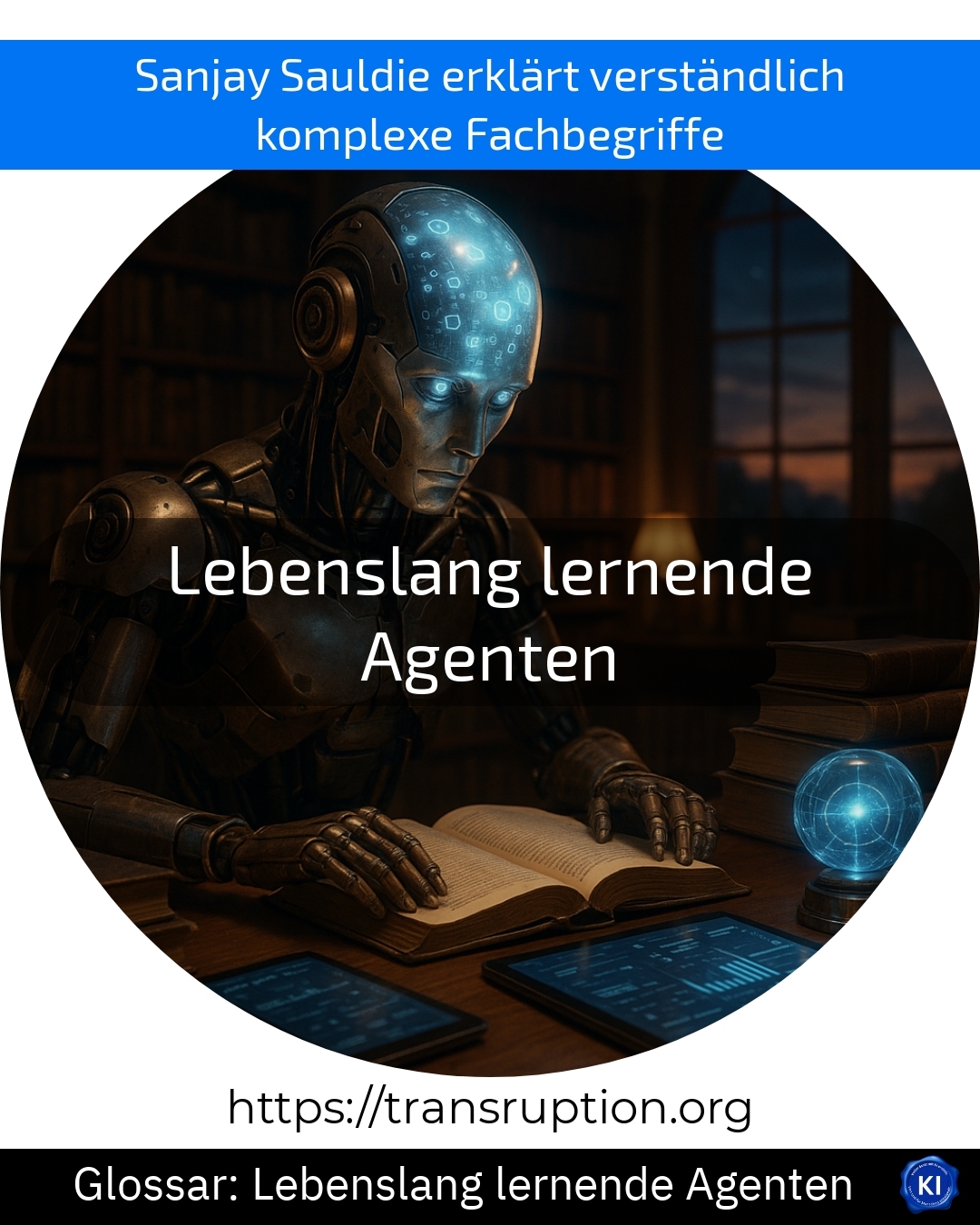The term "lifelong learning agents" comes primarily from the fields of artificial intelligence, automation and robots. This refers to computer programmes or machines that are not only trained once, but are constantly learning - throughout their entire "life". The aim is for them to continuously adapt to new situations, tasks or challenges without having to be reprogrammed each time.
An illustrative example is a robot in a car factory. At the beginning, it knows how to assemble doors. If new car models or other parts are added later, the robot can learn how to deal with them independently through observation, experience and data analysis. In this way, it develops its "knowledge" further and works more and more efficiently.
Lifelong learning agents are therefore particularly useful when processes change frequently or a great deal of flexibility is required. In industry, they ensure greater productivity, fewer errors and save costs in the long term because they are always up to date and can master complex situations independently. This makes them important helpers in digitalisation and the transformation of the working world.















